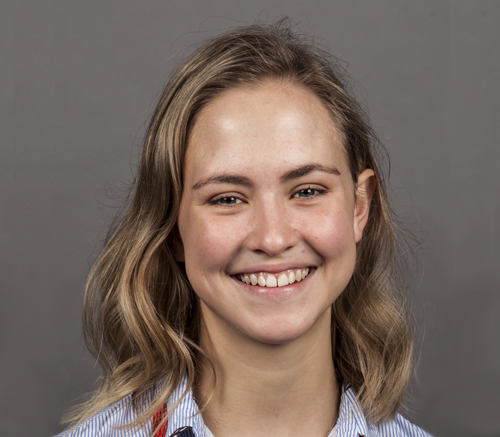
Alexandra Whelan
Honorary Team Member / Co-Program Manager
BSc, MPH
alexandra.whelan@thekids.org.au
+61 8 6319 1618
Alex is a Co-Program Manager for the END RHD Program where she coordinates a large and growing portfolio of research projects with a particular focus in the field of skin health and infectious diseases, including in remote Aboriginal communities in WA.
Alexandra holds a bachelor of Biomedical Science and Masters of Public Health from the University of Western Australia. She previously has experience working in rural and remote community health projects. She has a passion for community engagement and knowledge translation.
Education and Qualifications
- BSc in Biomedical Science - University of Western Australia, Perth Australia
- Masters of Public Health - University of Western Australia
Projects
Koolungar (Children) Moorditj (Strong) Healthy Skin
The Koolungar (children) Moorditj (strong) Healthy Skin project is the first ever co-designed research-service Australian study to describe skin health in urban-living Aboriginal koolungar.
DETECT Schools
The DETECT-Schools Study was launched in May 2020 as a partnership between the WA Government Departments of Education and Health with The Kids Research Institute Australia.
The Global Asthma Network: Understanding asthma in urban and regional Western Australia
Published research
Longitudinal surveillance of group A streptococcal pharyngitis and impetigo in remote Western Australian school children informs acute rheumatic fever prevention
The prevalence of impetigo and pharyngitis - which are both superficial group A streptococcus (GAS) infections that precede acute rheumatic fever - is poorly defined. Guidelines recommend the early diagnosis of both infections to prevent ARF; however, screening to enable the concurrent detection of these infections in high-risk populations has rarely been performed.
Centralising Local Aboriginal Language and Culture in Healthy Skin Books on the See Treat Prevent (SToP) Trial in the Kimberley Region of Western Australia: A Process and Impact Inquiry
Language is significant for communicating knowledge across cultures and generations and has the power to attribute meanings and alter our worldviews.
Oombarl Oombarl Joorrinygor-Slowly Slowly Moving Forward: Reflections From a Cross-Cultural Team Working Together on the See, Treat, Prevent (SToP) Trial in the Kimberley Region of WA
Reflexivity is crucial for researchers and health professionals working within Aboriginal health. Reflexivity provides a tool for non-Aboriginal researchers to contribute to the broader intention of reframing historical academic positivist paradigms into Indigenous research methodologies to privilege Aboriginal voices in knowledge construction and decision-making.
Optimisation of the sampling method for skin microbiome studies in healthy children: a pilot cohort study
Recent interest in the diverse ecosystem of bacteria, fungi and viruses that make up the skin microbiome has led to numerous studies investigating the skin microbiome in healthy skin and in dermatological conditions. However, skin microbiome analysis is challenging due to relatively low numbers of skin microorganisms compared to mucosal sites, such as the respiratory or gastrointestinal tracts. Microbiome results are heavily influenced by sampling methods.
Trimodal skin health programme for childhood impetigo control in remote Western Australia (SToP): a cluster randomised, stepped-wedge trial
Skin infections affect physical health and, through stigma, social-emotional health. When untreated, they can cause life-threatening conditions. We aimed to assess the effect of a holistic, co-designed, region-wide skin control programme on the prevalence of impetigo.
Multi-methods process evaluation of the SToP (See, Treat, Prevent) trial: a cluster randomised, stepped wedge trial to support healthy skin
Healthy skin is important for maintaining overall physical and cultural health and wellbeing. However, remote-living Australian Aboriginal children contend with disproportionally high rates of Streptococcus pyogenes (Strep A) infected impetigo.
Describing skin health and disease in urban-living Aboriginal children: co-design, development and feasibility testing of the Koolungar Moorditj Healthy Skin pilot project
Indigenous children in colonised nations experience high rates of health disparities linked to historical trauma resulting from displacement and dispossession, as well as ongoing systemic racism. Skin infections and their complications are one such health inequity, with the highest global burden described in remote-living Australian Aboriginal and/or Torres Strait Islander (hereafter respectfully referred to as Aboriginal) children. Yet despite increasing urbanisation, little is known about the skin infection burden for urban-living Aboriginal children.
Skin Health in Northern Australia
Achieving healthy skin requires the prevention of infectious diseases that affect the skin. Prevention activities range from environmental health improvements to address inequities in living situations, through to community-wide treatment programs to reduce transmission and improve skin health.
December 2022
Acceptability of OP/Na swabbing for SARS-CoV-2: a prospective observational cohort surveillance study in Western Australian schools
When the COVID-19 pandemic was declared, Governments responded with lockdown and isolation measures to combat viral spread, including the closure of many schools. More than a year later, widespread screening for SARS-CoV-2 is critical to allow schools and other institutions to remain open.
Western Australian adolescent emotional wellbeing during the COVID-19 pandemic in 2020
The impacts of the COVID-19 pandemic have been vast and are not limited to physical health. Many adolescents have experienced disruptions to daily life, including changes in their school routine and family’s financial or emotional security, potentially impacting their emotional wellbeing.
